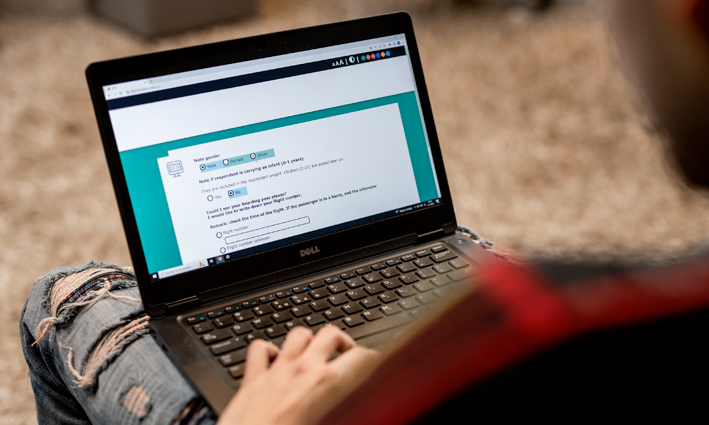Research is easy isn't it?
“I have run loads of campaigns and don’t need any help apart from conducting the actual fieldwork”. Sound familiar?
But have you really got the most out of your valuable investment
Chances are, if you can’t say all of the following statements you haven’t and you could have made the project much easier for yourself with a few simple changes to the way you approach the campaign.
- I can categorically say that my sample is nationally representative
- I’m crystal clear about how many respondents of a specific job title I need to understand their opinions
- I know how many people I need to interview, in each country, for an international survey to be relevant
- I know when it is more appropriate to run a telephone (CATI) survey rather than an online methodology
- I am confident in writing a questionnaire that will meet the research objectives and be clear to respondents
- I am clear about how to cross analyse my research results
- I am able to write up the research results in a systematic and unbiassed approach whilst telling the story of the data in a visually engaging way
If you can confidently say you agree with all these statements, congratulations! You are obviously on your way to being a research guru and will be focused on getting the most out of your campaign. If you can’t, don’t panic. Most people can’t either.
Our six top tips have been designed to help you prepare your campaign and ensure that you can say all of the above statements and maximise your investment in your next research project.
How to run the perfect quantitative research campaign
- Always have clear SMART research objectives
- Always ensure that your sample is representative of the population
- Get the questionnaire right if you want to generate insights that will answer all your research objectives
- Predict what the pitfalls of the research are likely to be
- Ensure you have someone with a research background to analyse the results
- Make the reporting insightful, easy to read and easy to understand

1) Always have clear SMART research objectives
Research objectives are key for any research project. Without them you are navigating a ship without a map or compass and it is going to be pot luck if your project actually fulfils any of your marketing or business objectives.
The following questions will be helpful in writing your research objectives: •
- What do I want to get out of this research?
- Have I got any of this data already?
- Will this research fulfil my marketing objectives?
- Do I have enough budget for this research?
Arlington Research – or your chosen research agency – will be able to help you answer these questions.
Now you need to write your research objectives, or work with your chosen agency to write them for you. Research objectives should be smart (specific, measurable, agreed upon, reliable and time based). Research objectives should align completely with your marketing and business objectives.
When writing your research objectives your research agency will be able to help you shape them. It is really important that they are agreed internally and communicated to your research agency so that everyone is on the same page to create a great piece of research.
2) Always ensure that your sample is representative of the population
Unfortunately, ‘rubbish in, rubbish out’ is the story of too many research projects. To create robust and meaningful research stats, you first need a robust and representative sample. A sample is a proportion of the population that you want to survey. If you want to interview uk parents with kids aged under 16, for example, you obviously can’t interview all of them, so in research we use a sample to represent the population as a whole. The greater number of quotas that are applied to the sample, the more representative it will be of the uk parent population.
The sample also needs to be large enough to reflect the overall population. Your chosen research agency will be able to guide you on size and quotas for your sample. As a minimum, you will want your sample to be representative in terms of region, gender and age for a general population or parent survey. For a sample of uk parents, for example, you would also want to commission a sample of at least 1000 adults (ideally more) so that you use your research results with confidence with a low margin of error.

3) Get the questionnaire right if you want insights that will answer all your research objectives
Anyone can write a questionnaire (badly). If you are good at writing, it is easy to think that writing a questionnaire is a doddle, so why pay for a researcher to do it for you? In reality though, the questionnaire is critical to the project’s success and factors such as the phrasing of every question, deciding which questions to include and using the best response scales all have a major impact on the quality of the results produced. If a researcher designs the questionnaire for you, it should save you money overall as you won’t have any wasted questions and the researcher will make sure that you maximise the insight potential from every question asked. It is also really important that the questions are clear and easy to understand from the respondent’s perspective to encourage research participation and generate accurate answers.
Your researcher will also be able to advise on which demographic (profiling) questions to ask so that you can cross-analyse your results against demographics such as household income, profession or any other questions relevant to your project. It’s also really important to ensure that your questionnaire isn’t biased or doesn’t have any leading questions. If a researcher designs your questionnaire, it will give you peace of mind that the results will stand up to scrutiny.

4) Predict what the pitfalls of the research are likely to be
One of your chosen research agency’s most important roles will be to advise you on what can go wrong in your project. The following questions should be asked before every project to help avoid the most common pitfalls:
- Have I allowed enough time to get stakeholder input into the questionnaire?
- Have I got sufficient ‘insurance’ questions in my questionnaire in case the results aren’t as expected?
- Is the sample source from a quality sample?
- Have I allowed enough time for fieldwork?
- Will enough people complete my survey?
- Who is going to code any open-ended responses?
- Have I allowed enough time from getting the research results to issuing my press releases (if the research is for PR)?
Once again, your chosen research agency will be able to guide you through this process and manage the fieldwork for you so that it is conducted on time and to budget.
There are particular pitfalls to be aware of when conducting Business to Business (B2B) Research. Here, you will need to make sure that your chosen research agency has expertise in this area and that they are using B2B quality samples where job titles and professions are checked rather than respondents pretending they are a Managing Director!
Planning ahead and preparing for disaster will help ensure that your research project runs smoothly and meets all the project milestones on time.

5) Ensure you have someone with a research background to analyse the results
Anyone can analyse results, can’t they? Once again, anyone can do this badly. Now the research has finished and you have the results (usually in research tables) the importance of having an experienced researcher to analyse them for you should never be underestimated. The results will contain a mine of powerful stories to be told, but these can easily be lost if the analysis isn’t done properly.
Your chosen research agency will analyse the results from all angles, cross-reference them against the demographic questions and against other question results so that you have an in-depth picture of what the research is really telling you. It may be that some of your hypotheses before the research have come true. Or it may be that they have been disproven. Either way (particularly the latter) a researcher can help tell your research story by picking out the key results and ensuring that nothing gets missed.
It is also vital to interpret the results correctly. Your chosen research agency will ensure this is done so that the results hold up to scrutiny. Always remember as a rule of thumb not to report on base sizes of less than 50 respondents.

6) Make the reporting insightful, easy to read and easy to understand
As with any project, the reporting is what truly brings it to life and ensures that it has a legacy after the research has finished. It is always worth talking to your chosen research agency at the outset of your project if you have a particular reporting style that you would like them to follow. The reporting needs to engage the key stakeholders and help the content writers (in the case of PR Research). Always ensure that the reporting directly answers the research objectives and that the reporting style and content best meet the needs of its’ readers.
Once again, using a researcher to write the report will be money well spent, as they really understand the results and are experts at telling the story of the data and highlighting the key insights for you. Whether the results are in the format of an Executive Summary, PowerPoint Debrief or workshop, the best reporting is clear, easy to read and impactful.

